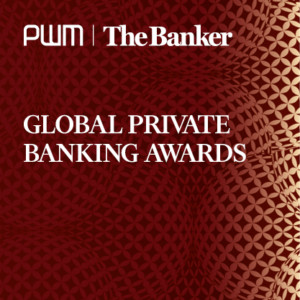Global Private Banking Awards 2019: Winners’ Profiles – Regional Winners

Best Global Private Bank; Best Global Private Bank for Customer Service;
Best Private Bank for Global Families and Family Offices
Citi Private Bank
Everything is finally clicking for Citi Private Bank, which is achieving success in its ambition to deliver private banking services to the highest echelon of what it calls “global citizens”.
These are small numbers of clients which the bank serves, probably less than 12,000 families with investments in excess of $25m around the world. But Citi’s aim to give these families a global service, where they receive the same attention from 1,000 front-line private bankers in 48 offices, wherever they find themselves in a particular week, seems to be ringing true.
This means that if a global client opens an account outside their home region, a “host banker” will contact them to advise upon and execute transaction, in the same fashion as would have occurred in their home city. This host banker will also keep the primary relationship manager informed of all local transactions, so that when the client or family returns once more to their home stomping ground, their usual bankers are aware of their global asset exposures and business interests abroad.
One of the key improvements in the Citi offering has been a focus on the investments platform, with the establishment of a dedicated Citi Investment Management internal investment firm to serve the bank’s private clients. This is an unusual move among private banks, but a sensible one in a world where the distinction between asset and wealth managers is becoming more vague, leaving clients with access to a greater number of potential competitors.
This proprietary asset management business is involved in all key markets, including Asia, where the group can cater to clients who make transaction orders in Mandarin, Cantonese and other regional languages.
The Asian investment operation under Roger Bacon is currently recruiting more Chinese nationals into its expanding, research-based operation.
“We are focused on identifying native Chinese people to move into the business,” says Mr Bacon. “Clients on the mainland want to speak to people from their part of China.”
In addition to proposing research-based thematic equity portfolios and alternative offerings in sectors such as biotechnology, investment staff are able to have deeper conversations with clients around specific objectives and opportunities. This is a far cry from 10 years ago when internal investment staff complained about a bureaucratic internal structure which allowed them no flexibility in their investment practices. YB
Best Private Bank in Europe;
Best Private Bank in Switzerland
Pictet
Headquartered in Geneva, at the heart of Europe, Pictet considers the continent as a natural strategic market, together with Switzerland, its historical market, and Asia.
Founded more than 200 years ago, the bank opened its first European office in London in 1980, and now has 27 offices across the world.
Pictet has been a pioneer in socially responsible investment, having launched strategies in that space more than 20 years ago. Today, Pictet’s thematic franchise, which invests in companies addressing environmental and societal challenges, stands at $41bn.
“We are seeing a trend amongst UHNWI to embed responsibility or ESG more holistically throughout the management of their wealth,” explains Heinrich Adami, head of private banking in London at Pictet Wealth Management.
In response to this demand, Pictet Wealth Management has launched a dedicated multi-assets responsible investing offering which combines different approaches currently available in the market, spanning ESG integration and active ownership, sustainability themes, and impact investing. “More products and solutions will emerge as the space becomes increasingly sophisticated to meet the expectations of a new generations of clients,” he adds.
Operating as a partnership since the foundation of the group in 1805, Pictet’s seven partners share many common features with entrepreneurs and families. As such, they have a personal understanding of the needs and challenges that entrepreneurs and wealthy families face, as they have to deal with the same worries such as succession, education and the role of money.
“That experience, together with Pictet’s exclusive focus on wealth and asset management, with no investment banking activity and thus no conflicts of interest, has allowed us to offer independent advice to entrepreneurs throughout the lifecycle of their business,” says Mr Adami.
“It is also Pictet’s partnership ethos that allows the group to concentrate on creating value for the long term, a game-changer for wealthy families that often span several generations.” PG
Best Private Bank in Central and Eastern Europe;
Best Private Bank in Austria; Best Private Bank in Croatia
Erste Private Banking
Celebrating its 200th anniversary in 2019, Erste Group knows the importance of its traditions, but also of having a forward-thinking mindset.
Its ‘George’ online platform now handles the banking needs of more than 5m customers in Austria, the Czech Republic, Slovakia and Romania, with Croatia and Hungary next in line.
“Private banking clients in Austria have access to state-of-the art asset reporting through George,” says Thomas Schaufler, the Erste Bank Austria board member responsible for Private Banking. “This interactive reporting allows clients to view their entire portfolio of assets online at any time. Its comprehensive functions makes it possible for clients to, among other things, choose the period of the report, easily find all securities positions, and retrieve detailed evaluations.”
Erste’s private banking operations now cover 19,000 clients across Austria and the CEE region, with AuM standing at €22.6bn ($24.9bn).
Alternative investments are of increasing interest to these clients, with real estate funds proving particularly popular. “Private equity is starting to be perceived as an interesting vehicle for enhancing the portfolio return,” says András Kállay, head of Erste Group Private Banking CEE Competence Centre. “However, this type of investment is still at an early stage for most of our clients.”
ESG investments are also a growing part of client portfolios, especially in Austria, where responsible investing has a long history, he says.
To enhance efficiency and profitability, Erste has initiated the process of downgrading some clients below the official private banking threshold. “Those downgrades that we did undertake – mainly to the top affluent segment – went really smoothly because we have a very broad product and service offering and due to the fact that the impacted clients still have a well-qualified personal adviser, quite possibly a mid-level adviser,” says Mr Kállay. ES
Best Private Bank in the Middle East;
Best private bank in Qatar;
Best Private Bank in Russia;
Best Private Bank for Entrepreneurs
Credit Suisse
Credit Suisse’s distinctive trait is its ability to deliver its services through an integrated franchise, across private banking, investment and corporate banking. Founded 163 years ago by Alfred Escher, the Swiss business leader, politician and railway pioneer, the bank keeps entrepreneurial thinking as one of its core principles, and prides itself in being able to support entrepreneurs through every stage of their business cycle.
In Russia, where private wealth and corporate activities are much more intertwined than in western Europe or the US, many clients are entrepreneurs, having major stakes in Russian companies. “Our clients are looking to us beyond wealth management and we can provide them access to our other capabilities, including project finance, export finance, structured lending and investment banking,” says Robert Cielen, head of International Wealth Management Emerging Europe at Credit Suisse.
Many of the bank’s relationship managers have backgrounds in corporate and investment banking, which enables them to better understand client needs and deliver across a broad range of corporate and investment banking opportunities.
In Russia, increasing numbers of UHNW clients have their own family offices, employing seasoned investment professionals and the bank is investing in a dedicated UHNW investment delivery function for the Russian market. This includes continuing to hire investment professionals that are “true investment partners” to the most sophisticated clients and their family offices, as well as providing clients access to Credit Suisse’s Global Markets’ trading platforms and institutional-type services.
In the Middle East, the UHNW client segment provides the biggest source of wealth but entrepreneurial wealth is rising too. “Although still relatively nascent, entrepreneurship is beginning to flourish in the Middle East, as the region’s economic growth prospects diversify from traditional industries and move towards new sectors,” states Bruno Daher, head of International Wealth Management Middle East and Turkey at Credit Suisse. Moreover, as part of a drive to build a self-sustaining non-oil sector, GCC countries such as Saudi Arabia, the UAE and Qatar, are building a framework that is more supportive for start-up enterprises and allows for greater competition.
Middle Eastern investors, including Qatari nationals, are looking for global and local solutions that address both their business and personal needs. When compared to other emerging market investors, such as from Asia-Pacific, the Middle Eastern investor has less developed capital markets and local solutions in their own region. “Credit Suisse is well positioned to partner with these clients and support the region’s appetite for a unique, complex, and cross-regional offering, utilising our private bank, investment bank, and asset management franchise,” explains Mr Daher.
A further client benefit of this approach is risk diversification. Many clients hold a large portion of their assets in a single country or region, but the bank’s offering of lending against local shares allows the firm to provide clients with the required liquidity, offering diversification and yield enhancement through reinvestment in well-diversified investment solutions. “We can help our clients to diversify internationally without having to sell their assets,” he says.
The bank’s commitment to the Middle East is underscored by the growth of its onshore footprint, through the establishment of its Saudi Arabia Booking Platform, launched in 2017. In 2019, Credit Suisse was granted a provisional Saudi Arabian Monetary Authority banking license, and is currently in the process of setting up a branch. ET
Best Private Bank in Asia;
Best Private Bank for UHNW Clients;
Best Private Bank for Sustainable Investing
UBS
The rapid growth of UBS’s discretionary managed sustainable investing portfolios, which have swollen to SF7bn ($7bn) from SF1bn at the beginning of 2018, is testament to growing client demand.
“Many clients, not just younger generations, have strong sustainability affinities,” says James Purcell, global head of sustainable and impact investing at UBS Global Wealth Management. “We seek to respond to that demand by offering investment products and services that are highly credible, impactful, and, where possible, give the client the opportunity to express their individual personal values.”
Partnerships are critical to innovate in this space. UBS partnered with the World Bank to co-design the world’s first financial benchmarks for publicly traded development bank debt, and then built a financial product with exclusive liquidity terms. In its discretionary managed sustainable investing portfolios, it has tapped the expertise of many investors, including BlackRock and Amundi.
Clients have also responded positively to the bank’s private market partnerships. The bank has raised almost SF500m for its Oncology Impact Fund in partnership with MPM, and has also worked with firms like KKR and Generation on impact fund launches.
Most recently, UBS partnered with Hermes and Federated Investors to launch the first fixed income fund, in high yield credit, where ESG engagement is at the core of the investment strategy. “While engagement has long been associated with equity investors and their voting power, we feel strongly that the regular contact and refinancing provided by bond investors make them a key stakeholder for corporates and thus a highly effective engagement partner,” adds Mr Purcell.
UBS, the world’s largest wealth manager, sources more than $411bn in client assets from Asia, equivalent to 16 per cent of its $2.5tn total AuM. Asia hosts the highest number of billionaires in the world, more than 800, representing almost 40 per cent of the global billionaire population, according to the UBS/PwC Billionaire 2018 report. “The region remains one of the most important sources of new business opportunities for UBS,” says August Hatecke, co-head, Asia, at UBS.
The bank has had a presence in the region for more than 50 years and has 12 wealth management offices in 10 locations, with Singapore and Hong Kong its key booking centres. In China, it is also one of the few foreign banks with both onshore branch banking and full securities licences. Its three trading outlets in China offer wealth management services through UBS Securities.
UBS’s joint venture with Sumitomo Mitsui Trust Holdings, announced in June, represents the Japanese market’s “first-ever” wealth management partnership with an international financial group and a Japanese trust bank, according to UBS.
Domestic businesses are expected to become increasingly important for the bank, going forward.
“Many of the bank’s Asian wealth management clients are entrepreneurs, who require a global bank offering wealth management services but also capabilities to advise on and execute complex corporate transactions,” states Mr Hatecke. These include large asset-sales, M&A, IPOs, and other large capital raising activities, and UBS client advisers undergo “specialised additional training modules” to be able to help clients explore these opportunities.
With the largest wealth transfer in history looming, - globally, UBS foresees a wealth transfer of $2.4tn in the next 20 years - succession planning is an important topic among Asian UHNW clients.
“We are witnessing a mindset shift over the last years: for our clients succession is more than passing on wealth,” says Amy Lo, co-head, Asia. “Bringing up the next generations with a deep understanding and pride in their family heritage and family values, harmony between family members, motivating the next generations to build on the success of the pioneer generations is even more crucial,” she adds.
Wealth managers serving these clients need to shift from a pure asset succession mindset to legacy-creation. The family office setup and philanthropy often play an important role in establishing legacy strategies, and UBS delivers bespoke solutions in partnership with its in-house UBS Optimus Foundation.
Globally, the merger of UBS’s US wealth management business with its international wealth management division, at the beginning of 2018, continued the bank’s journey started three years ago to closely align its divisions, aiming to improve efficiency and sharing of best practices, generating greater returns on investments and enhance client service.
“The creation of Global Wealth Management at the start of 2018 was an important milestone for the bank. Our long-term strategy focuses on all regions and segments, with strong growth targeted in the US, Asia and the key ultra segment,” states Tom Naratil, co-president, UBS Global Wealth Management.
“Cross-business collaboration is a big competitive advantage for us and something we’re always looking to enhance.” ET
Best Private Bank in Latin America
Santander Private Banking
Santander Private Banking’s presence stretches across 10 different markets, serving more than 210,000 clients in Europe and the Americas.
The bank has recently directed efforts towards the integration of its different private banking business in separate countries. Thanks to the introduction of a new global value proposition, local private banking clients are now able to become customers in all the countries where the bank operates.
In addition, Santander has launched a new segment for the group’s largest clients, offering exclusive products and services for the bank’s most affluent customers. The new segment, called Private Wealth, now has some 1,600 clients. Profits in this area have been strong, increasing by 17 per cent in 2018, and by 20 per cent year-on-year in the first half of 2019.
Two years ago, Santander made the move to create a dedicated wealth management division, and the area is expected to be one of fastest-growing businesses within the group over the next few years. The bank’s goal is “to be the best and most responsible wealth manager in Europe and the Americas”, according to Víctor Matarranz, head of wealth management.
“In private banking, we will continue to focus on being a global platform that combines the best bankers and investments with the best of the digital world. For example, over the coming months, we will completely overhaul our private banking branches in order to introduce a large innovation component,” he says.
Environmental, social and governance (ESG) initiatives are a pillar of the group’s strategy. “We are creating a complete ESG product offering, and we have experts in the area working with the goal of introducing ESG into the advisory process,” adds Mr Matarranz. PG



